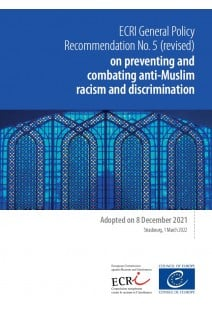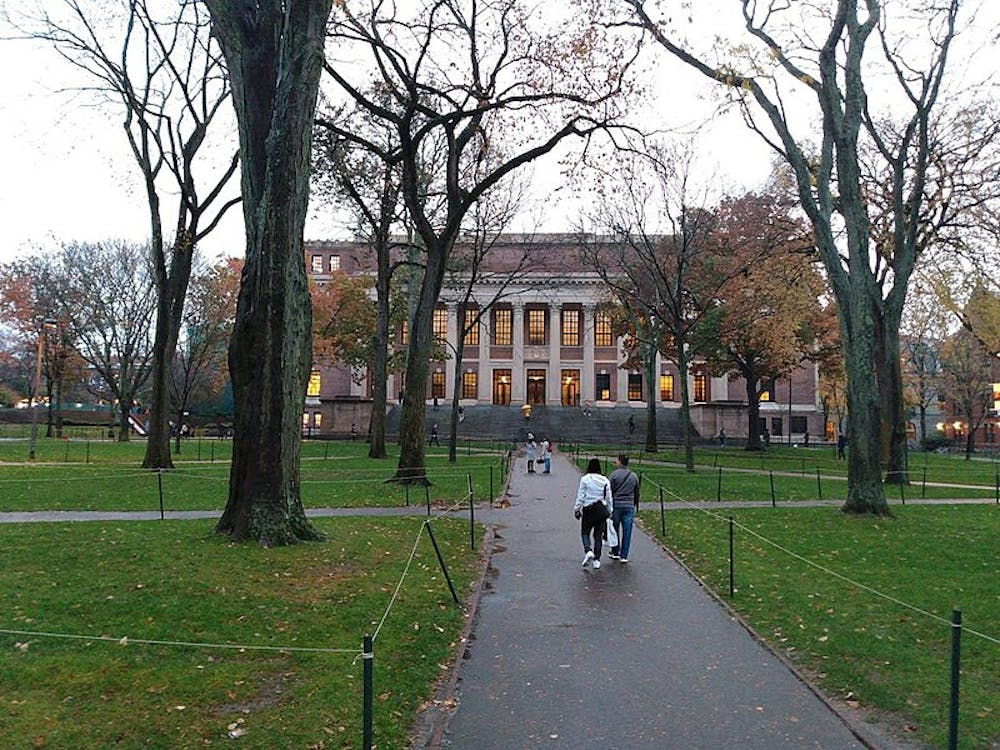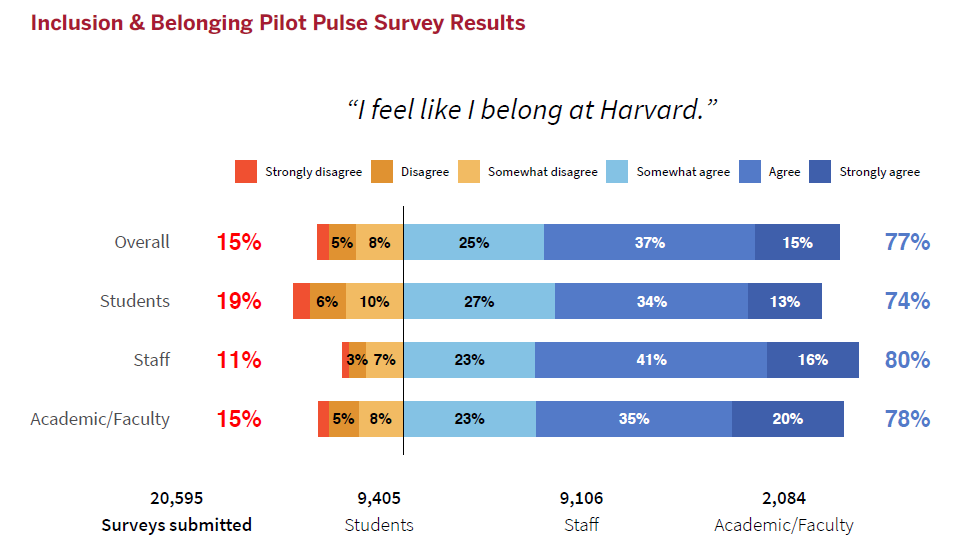Combating Anti-Muslim Bias is crucial for fostering a harmonious and inclusive environment at Harvard University. The recent actions prompted by President Alan M. Garber’s announcement emphasize the commitment to address discrimination against Muslim, Arab, and Palestinian communities on campus. Through strategies focused on enhancing campus safety, promoting respectful dialogue, and revising institutional policies, Harvard aims to uplift Muslim student safety and ensure their voices are heard. Additionally, initiatives from the Harvard Anti-Muslim Task Force will play a vital role in tackling widespread issues like anti-Arab discrimination and advocating for Palestinian representation Harvard. By acknowledging these challenges, the university not only strengthens its dedication to inclusion but also cultivates an academic atmosphere where diversity can thrive.
Addressing discrimination against Islam and Arab communities is an essential responsibility of academic institutions. The concerted effort at Harvard is designed to enhance community cohesion by implementing campus inclusion initiatives that actively fight biases. This commitment includes a thorough evaluation of policies affecting Muslim students, with a focus on ensuring their safety and fostering an inclusive academic dialogue. The task force aims to promote understanding and representation for Palestinian voices while simultaneously tackling anti-Arab sentiments. Through these multi-faceted approaches, Harvard seeks not only to combat negative stereotypes but also to create a rich, diverse environment for all students.
Understanding Anti-Muslim and Anti-Arab Bias on Campus
The prevalence of anti-Muslim and anti-Arab sentiments in educational institutions has become a pressing concern, particularly at high-profile universities like Harvard. These biases often manifest in various forms, including microaggressions, social exclusion, and outright discrimination. Such negative experiences profoundly affect the sense of belonging and safety among Muslim and Arab students, as highlighted in the findings of the Presidential Task Force on Combating Anti-Muslim, Anti-Arab, and Anti-Palestinian Bias. The report revealed disturbing statistics, with a significant percentage of Muslim and Middle Eastern students feeling unsafe on campus, which underscores the critical need to address these biases comprehensively.
Beyond mere statistics, the emotional and psychological toll of anti-Muslim bias cannot be overstated. Many students report feelings of alienation and fear, which can hinder academic performance and participation in campus life. This environment not only affects individual students but also impairs the overall academic community, stifling dialogue and the exchange of diverse perspectives. Universities need to not only recognize these issues but actively implement strategies that promote inclusivity and protect the rights of all students, fostering an educational atmosphere where everyone feels valued and secure.
Combating Anti-Muslim Bias: Harvard’s Initiative
In response to the rising concerns regarding anti-Muslim biases, Harvard has launched a series of initiatives aimed at addressing these ingrained issues within the campus environment. The University is taking significant steps to ensure that all community members, regardless of their background, feel welcomed and supported. Among these initiatives is the establishment of training programs designed to educate faculty and staff about anti-Muslim, anti-Arab, and anti-Palestinian biases, promoting a more empathetic and informed community. This proactive approach is vital for fostering a culture of respect and understanding across campus.
Moreover, Harvard’s commitment to combating these biases is reflected in its active reassessment of policies related to admissions, curriculum development, and community engagement. By prioritizing diversity and inclusion in its academic offerings, the University aims to ensure that the histories and cultures of Muslim, Arab, and Palestinian communities are adequately represented in educational discourse. The Task Force’s recommendations highlight the importance of creating safe spaces where students can express their identities and perspectives without fear of discrimination, thus laying a strong foundation for a more harmonious academic environment.
The Importance of Campus Inclusion Initiatives
Campus inclusion initiatives play a crucial role in promoting diversity and ensuring that marginalized voices are heard. At Harvard, various programs are being launched to enhance the inclusivity of Muslim, Arab, and Palestinian students. These initiatives focus on creating a welcoming atmosphere that celebrates cultural differences while encouraging open dialogue and exchange of ideas. Ensuring that all students feel they belong is crucial for academic success and personal development, particularly for historically underrepresented groups.
Furthermore, effective inclusion initiatives involve not only policy changes but also community-building efforts that foster relationships across diverse groups. By addressing the needs and concerns of different communities, such initiatives help mitigate feelings of isolation among students. Creating affinity groups and safe spaces allows Muslim, Arab, and Palestinian students to share their experiences, advocate for their rights, and engage in meaningful conversations about their identities. Ultimately, such initiatives contribute to a vibrant and dynamic community where all members are respected and valued.
Enhancing Muslim Student Safety at Harvard
The safety and well-being of Muslim students at Harvard have become focal points of concern, especially in light of recent events that have heightened tensions around issues related to Islamophobia. It is essential for the University to implement robust safety protocols that protect students from discrimination and hate. The Task Force’s recommendations emphasize the need for comprehensive mental health support tailored to the unique experiences of Muslim students, who often face additional stressors related to their identity.
Additionally, measures to enhance campus safety should include clear protocols for reporting incidents of bias and discrimination, ensuring students can feel secure when voicing their concerns. Regular outreach and engagement with the Muslim student community can foster trust and facilitate dialogue about safety and inclusivity. By addressing these safety concerns through concrete actions and a commitment to ongoing dialogue, Harvard can significantly improve the experiences of its Muslim students, leading to a more supportive educational environment for all.
Promoting Palestinian Representation at Harvard
Palestinian representation within academic institutions has become increasingly critical, particularly within discussions of the Israeli-Palestinian conflict. At Harvard, there is a growing recognition of the need to foster an educational environment that accurately reflects the diverse perspectives and histories of Palestinian students. This includes not only incorporating Palestinian studies into the curriculum but also promoting awareness and understanding of the socio-political issues that affect Palestinian communities worldwide.
Promoting Palestinian representation is also about ensuring that voices of solidarity and advocacy are included in campus discourse. The Task Force on Combating Anti-Muslim, Anti-Arab, and Anti-Palestinian Bias highlights the importance of creating spaces where Palestinian perspectives can be shared and explored. Such initiatives can lead to greater understanding and encourage constructive dialogue, ultimately enhancing the academic community’s ability to engage with complex global issues.
Data Gathering and Analysis to Address Bias
The systematic collection and analysis of data are crucial for understanding the scope and impact of anti-Muslim and anti-Arab bias within educational institutions. At Harvard, the Task Force has embarked on comprehensive data-driven initiatives to compile feedback from students, faculty, staff, and alumni. By analyzing the experiences and perceptions of Muslim and Arab community members, the University can identify key areas for improvement and implement targeted interventions to address bias effectively.
Moreover, utilizing findings from surveys and listening sessions allows Harvard to quantify experiences of discrimination and identify trends in campus climate. This evidence-based approach is crucial for developing effective policies and practices that promote safety and inclusion while fostering a culture of empathy and respect. Regularly reviewing and updating these initiatives based on community feedback will ensure that the University remains responsive to the needs of its diverse student body.
Adopting Policies for Freedom of Expression
The principle of freedom of expression is fundamental in academic institutions, yet it must be balanced with the need to create a safe environment for all students. At Harvard, the Task Force emphasizes the importance of policies that protect students’ rights to free speech while simultaneously safeguarding against hate speech and discrimination. Clear guidelines should be established to delineate acceptable forms of expression, ensuring that dissenting views can be communicated respectfully and constructively.
Initiatives that educate community members about the nuances of free expression are vital for fostering an environment where all voices can be heard. By promoting a culture of open discourse, Harvard can encourage healthy debate on contentious topics related to identity, politics, and social justice, including the experiences of Muslim and Arab students. Such a balanced approach will not only uphold the core values of academic freedom but also promote an inclusive community where all identities are respected.
Building Trusted Relationships Among Affinity Groups
Creating strong relationships among diverse affinity groups is key to fostering inclusion and understanding within the campus community. Harvard’s commitment to building trust among its Muslim, Arab, Palestinian, and other minority communities involves facilitating collaborative programming and dialogue. Encouraging inter-group engagement can break down barriers and create a more cohesive social fabric, enhancing the overall campus experience for all students.
By establishing forums where different groups can come together to discuss common challenges and goals, Harvard can cultivate a spirit of solidarity that transcends individual identities. These initiatives can empower community members to work together towards shared objectives, fostering a greater sense of belonging and mutual respect. Ultimately, such collaborative efforts will help create a campus environment where diversity is celebrated and all students can thrive together.
The Role of Academic Excellence in Promoting Inclusivity
Academic excellence and inclusivity are mutually reinforcing concepts that should be prioritized within educational settings. Harvard is taking steps to enhance its academic offerings related to Muslim, Arab, and Palestinian studies, recognizing that a diverse curriculum enriches the educational experience. By recruiting faculty who specialize in these areas and developing courses that explore the histories and cultures of these communities, the University can ensure that all students have access to a comprehensive education.
Moreover, embracing intellectual diversity benefits the entire academic community by allowing for a broader range of perspectives and ideas. Such an approach encourages students to engage critically with complex global issues while fostering a sense of belonging. By committing to academic excellence that prioritizes inclusivity, Harvard not only upholds its educational mission but also addresses the pressing need for representation within its curriculum.
Frequently Asked Questions
What initiatives has the Harvard Anti-Muslim Task Force implemented to combat anti-Muslim bias?
The Harvard Anti-Muslim Task Force has implemented several initiatives focused on promoting a sense of belonging and respectful dialogue within the campus community. These include revising policies, enhancing student safety, launching viewpoint diversity initiatives, and conducting a comprehensive overview of the histories of Muslims, Arabs, and Palestinians at Harvard.
How does the task force plan to address anti-Arab discrimination on campus?
To combat anti-Arab discrimination, the task force recommends establishing a standing advisory committee, conducting in-depth training for stakeholders on community issues, and promoting programming that enhances civil discourse. These strategies aim to improve recognition and representation for Arab and Muslim students while ensuring their voices are heard.
What measures are being taken to enhance Muslim student safety at Harvard?
To enhance Muslim student safety, the task force proposes investing in culturally competent mental health support, providing comprehensive resources to combat doxxing, and formally defining instances of anti-Muslim and anti-Arab bias within University policies. These efforts aim to create a safer environment for all students.
How will campus inclusion initiatives promote Palestinian representation at Harvard?
Campus inclusion initiatives focus on promoting Palestinian representation by expanding academic offerings related to Palestinian studies, increasing recruitment of diverse faculty, and enhancing the curriculum to reflect the complexities of Palestinian histories and experiences. This approach aims to foster a more inclusive academic environment.
What are the key recommendations from the task force on combating anti-Muslim bias at Harvard?
Key recommendations include fostering safety and security for Muslim, Arab, and Palestinian community members, enhancing transparency in complaint processes, reaffirming freedom of expression, and creating dedicated spaces for cultural and religious practices. These recommendations seek to address systemic issues of bias and discrimination.
How can students report incidents of anti-Muslim bias at Harvard?
Students can report incidents of anti-Muslim bias through clearly communicated and user-friendly bias complaint processes outlined by the University. The task force emphasizes the need for transparent procedures that guide complainants and ensure their concerns are addressed effectively.
What role does dialogue play in the Harvard Anti-Muslim Task Force’s approach to combating bias?
Dialogue is central to the Harvard Anti-Muslim Task Force’s approach. It encourages open, respectful conversations among students, faculty, and community members to tackle biases and promote understanding. Initiatives include fostering vibrant debate and ensuring that all voices can be expressed freely in a supportive environment.
In what ways has the community responded to the findings of the task force regarding anti-Muslim and anti-Arab bias?
The community has provided significant feedback on the task force’s findings through listening sessions and surveys, revealing experiences of discrimination and calls for a more inclusive curriculum. This feedback has shaped ongoing discussions and initiatives aimed at improving the campus climate for marginalized groups.
What ethical concerns are being addressed regarding Palestinian representation at Harvard?
The task force addresses ethical concerns regarding Palestinian representation by calling for divestment initiatives and increased engagement in Middle Eastern studies. These actions are aimed at ensuring that Palestinian voices and perspectives are adequately represented in both academic discourse and university policies.
How can Harvard strengthen relationships among diverse community groups as part of combating anti-Muslim bias?
Harvard can strengthen relationships among diverse community groups by creating dedicated spaces and programs catered to the needs of Muslim, Arab, Palestinian, and pro-Palestinian students. Initiatives like a University-wide Office of Religious, Spiritual, and Ethical Life can facilitate interfaith dialogue and enhance collaborative efforts across different student groups.
| Key Focus Areas | Details |
|---|---|
| Nurturing a Sense of Belonging | Promoting respectful dialogue and inclusivity within the community. |
| Policy Revisions | Revising and implementing policies to ensure fair treatment and eliminate bias. |
| Academic Strengthening | Enhancing curriculum and programs that represent diverse histories and perspectives of Muslims, Arabs, and Palestinians. |
| Community Engagement | Gathering feedback through listening sessions and surveys to address concerns and improve community relations. |
| Recommendations Implementation | Adopting new training for faculty and staff to recognize and address biases, and enhancing resources for mental health support. |
Summary
Combating Anti-Muslim Bias is a pressing issue that requires comprehensive action. The recent initiatives announced by Harvard’s President Garber, alongside the Task Force on Combating Anti-Muslim, Anti-Arab, and Anti-Palestinian Bias, aim to create a more inclusive and respectful campus environment. By addressing feelings of marginalization and proposing clear recommendations focused on safety, representation, and freedom of expression, the University is taking significant steps towards fostering understanding and support among all community members. These efforts are essential in building trust and ensuring that every voice is heard, thus enhancing the overall academic and social climate for students from diverse backgrounds.




